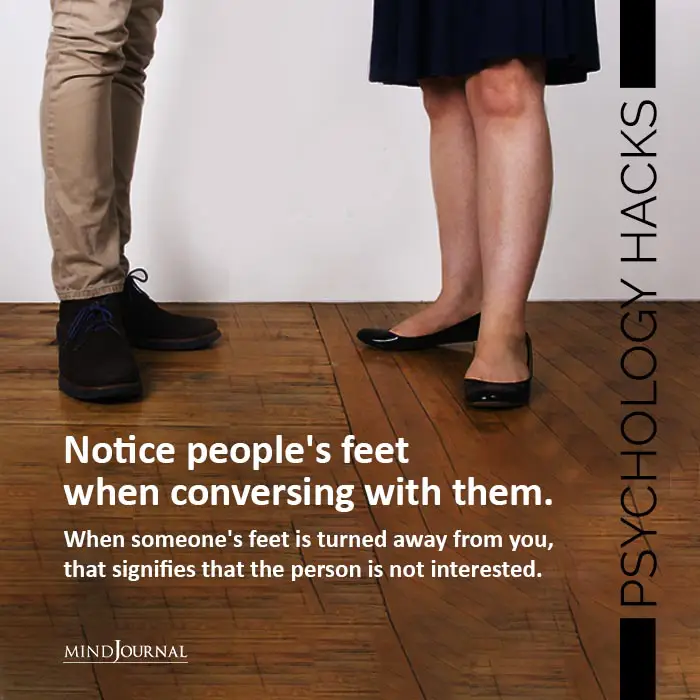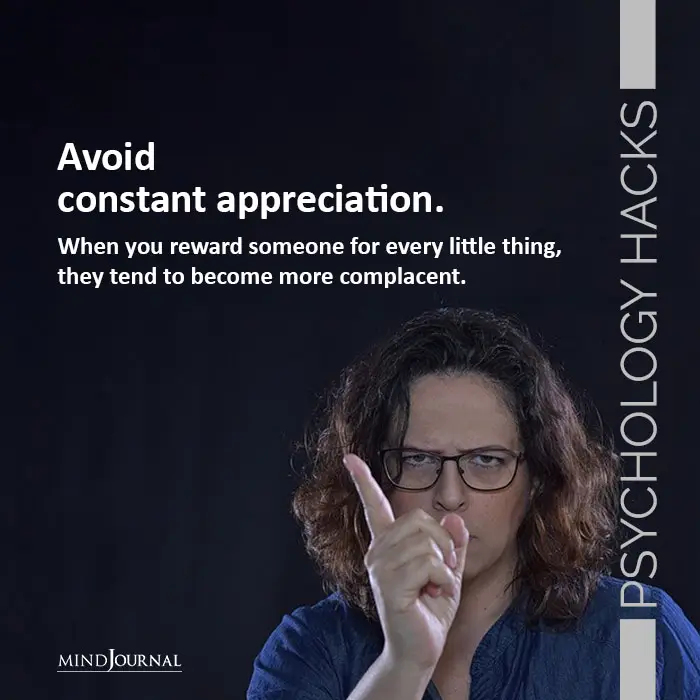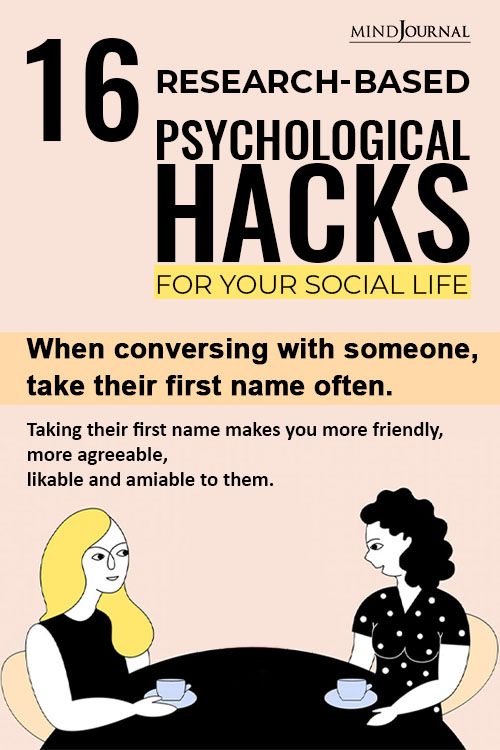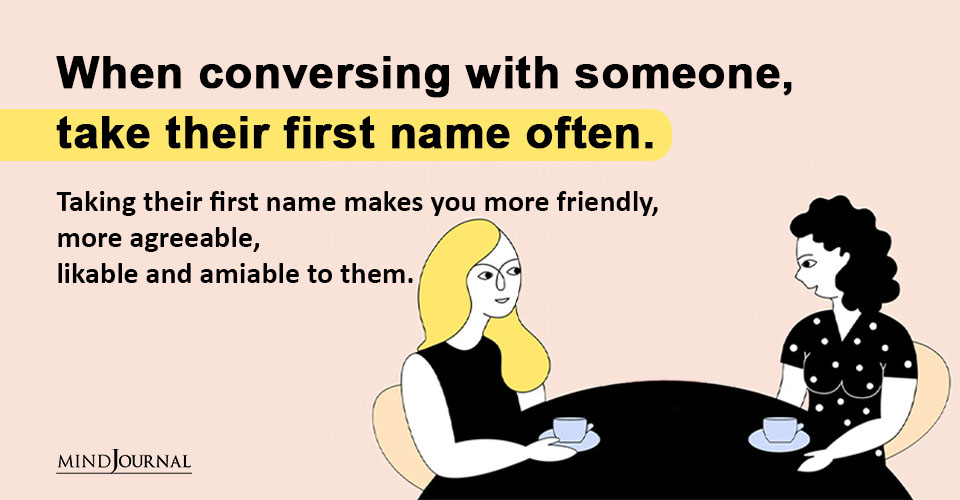There are a couple of psychological hacks, backed by strong research that can tremendously help you with your social life.
Human psychology can sometimes be a complex thing to understand. You might often find yourself in situations where you can’t understand how to deal with certain things and situations, which is why you find yourself at a loss for words. At the same time, you can’t read others’ minds and hence decipher what others are thinking and how others might react to something that you are doing, or saying
But the truth is, these seemingly complicated actions are results of chain reactions of certain simple things. If you can understand certain basic problems, the rest of the equations wouldn’t be too tough to handle.
Like language, the mind has its own grammar and own set of rules. There’s a particular pattern. You need to understand this language and apply it to your advantage. This will make you psychologically powerful and it will be then easier for you to communicate with others, and also help you understand people better.
Using powerful mental tools, you can become more socially acceptable, you can do well in interviews and get the best from everything and everyone.
These 16 psychological hacks will help your social life and are also very simple and effective. You should definitely use these for your own benefit!
(1) If you feel nervous, have some chewing gum.

When you are nervous about something, have some chewing gum, and keep on chewing it till the time you can feel the nervousness subsiding. When you chew gum, you basically trick your brain into thinking that you are not nervous at all, and you are completely relaxed.
Your brain exerts a lot more energy when you are panicky and scared compared to when you are relaxed. So, it rationalizes that just because you are doing something else other than the thing that was making you nervous, you are actually not nervous! Because if you were, then you wouldn’t have been chewing gum after all.
(2) Maintain silence after you ask someone a question you want to know the answer to.

When you are talking to someone and you ask them a question, but they seem like they are trying to avoid it, refrain from asking the question again, and stay silent. However, make sure that you maintain eye contact. This will make them feel a bit uncomfortable and pressurized, and in the end, they will end up answering your question whether they like it or not.
This pressure comes from an overwhelming sense of awkwardness and is the key to them blurting out what they originally did not want to tell you. Once the awkward silence starts to set in, chances are they will either try to fill the silence by conversing more or they will elaborate on the stuff they were talking about with you.
(3) When someone is insulting you, make sure that you ignore them.

If you feel someone is ill-treating you or demeaning you, the best policy is to ignore them. Human beings are social beings. They always expect other people to react. Nobody likes talking to a wall. When people try to pull you down, be that wall for them.
They will keep on hurting you or demeaning if and when they will see that they can’t break you, they will eventually get tired and stop. In most cases, they will feel embarrassed and end up accepting their guilt, too.
(4) Your first and last impression matters the most.

How you present yourself initially when you meet someone, and how you end your conversation with them can say a lot about you, and can greatly determine whether they liked you or not. This is because normally in the chronology of events, things that happen first and things that happen last tend to remain in our memories the most, compared to what happened in between.
You can use this trick in a lot of areas where you feel you need to strike a good first impression, like a job interview, impressing someone you love, or an important business meeting. Make sure that your first impression has a strong impact on the others, and once everything is done, leave with a bang!
(5) Remember things by combining them together in a single word or number.

Research says that the human brain has the ability to store only seven pieces of information at a time in their short term memories. Which means every human can handle between five and nine letters or numbers at a time. If you are someone who has more trouble remembering things than other people out there, this can help you a lot.
Simply combine them or chunk them together, especially really long sentences or complicated numbers. Remember VIBGYOR? By combining words and numbers, you are basically retaining them in your mind as a single entity. This makes it easier for you to remember complicated things better.
(6) Notice people’s feet when conversing with them.

People’s feet hold the key to understanding whether they are genuinely interested and invested in the conversation or not. Of course, staring intently at someone’s feet for a prolonged period of time can set them off and make them feel uncomfortable, but giving a tiny glance then and now will be enough for you to judge the situation.
Why is someone’s feet orientation important? It’s because when someone’s feet is turned away from you, that signifies that the person is not at all interested at what you have to say. But, if someone’s feet is directly pointing towards you, it means that they sincerely want to know everything you have got to say.
Related: 25 Amazing Psychological Facts That Will Boggle Your Minds
(7) No matter what, observe anything and everything.

Want to know who’s crushing on whom? Or who hates whom? Be the observer. Look into their eyes and their reactions. Your observation powers can help you a lot in knowing and understanding what other people are thinking about their beliefs and their genuine opinions.
People tend to laugh looking at the person they like, feel closest to or they wish to get close to. When people don’t like someone, they tend to avoid them, remain silent, or show no emotion towards them at all.
(8) Get yourself excited and positive before you meet someone.

Excitement and optimism can be highly contagious, and it is very difficult to feel angry and depressed amidst positive people. Human beings tend to respond well to social cues, and no matter who they were originally feeling, after a point the existing mood is bound to rub off on them.
Don’t freak out; there is nothing abnormal about this. Other people just tend to pick up your attitude, and unconsciously or consciously adapt to that. Hence, by being positive and showing a lot of excitement, you are conditioning others to behave in the same manner.
(9) Make sure that people never get to know everything about you.

This is one of the best and most effective psychological hacks for your social life, which can make it so much better. People are attracted to those who keep a mysterious air around them and do not disclose everything that is going on in their personal lives. So, don’t reveal everything about yourself. People will be more attracted to you and will feel drawn towards you due to the fact that they practically don’t know a lot of things about you.
Being too open about the details of your life increases the chances of people taking advantage of you or backstabbing you. Be open and honest but don’t show everything to everyone.
(10) Rub your hands together before you go in for a handshake.

Handshakes have always played a big part in deciding someone’s level of confidence, and that fact remains the same. The firmer your handshake, the better impression you will have on the other person. But there is another thing that you should keep in mind before you go in for a handshake.
The temperature of your hands also plays a big part in deciding your impression on the other person. Cold and wet hands tend to give off the wrong vibe, but if you have warm and dry hands, it is seen as a sign of high confidence. That is why the next time you decide to shake hands with someone, blow on them and rub them together to warm them up.
(11) When conversing with someone, take their first name often.

As a thumb rule, people love talking about themselves, and they love it, even more, when the conversation centers around them. When you are speaking with someone, and you take their first name to address them, they will find you friendlier, more agreeable, likable and amiable.
Talking to someone and taking their first names while doing so establishes a certain sense of camaraderie, and makes them feel closer to you; which is why they will also end up trusting you more.
Related: 12 Useful Psychological Tricks That’ll Give You An Edge When Dealing With People
(12) If you want a certain thing, always ask for more, never less, or that specific amount.

Human beings love to bargain, and even if they can easily afford the price quoted, they will still try to save money and get it for less. It’s also not possible to give 100 out of 100 always. Suppose you need 80. If you ask for 80, you will get less than 80.
If you ask for 100, you might get 80 or even more. Set your targets higher than you want or expect. This will help you achieve what you want.
(13) Slightly nod when someone is talking to you.

This is again one of the most important psychological hacks for your social life. When you are speaking to someone, make it a point to nod once in a while to indicate that you are following the conversation, and you are invested in it. This will make the other person feel seen and heard, and they will end up having a positive impression about you. However, keep in mind that there is a very thin line between being understated, and simply annoying.
(14) Express acknowledgment whenever you come across something good.

One of the best ways of interacting with people is by acknowledging them. Always acknowledge their help, goodness, and talent. Your acknowledgment will always be reciprocated.
When you acknowledge someone and their efforts, it works towards building a positive image of you, and there are strong chances that they will end up helping you with whatever you might need in the future.
(15) Avoid constant appreciation.

Constant validation sometimes does more harm than good when it comes to having results. When you reward someone for every little thing they do, they will tend to become more overconfident and complacent, bordering on spoilt. Rewarding something should only be treated as a “sometimes” option, not an “every time” option.
If you give in to praising them all the time, they will stop putting in effort after a point and will be satisfied with half-hearted and mediocre efforts. Once in a while, when you make them feel that they can do better, they will put in more effort, and the results will also be much better.
Related: 9 Psychological Tricks To Attract People And Make Them Like You Immediately
(16) Pretend you are happy.

When you feel down or depressed, smile. Smile even when you are extremely unhappy, no matter how tough it is. This will trick your brain into thinking that it’s happy, and is similar to the chewing gum logic. You tend to feel uncomfortable when actions don’t match your thoughts, and that is the basic premise of cognitive dissonance.
That is why when you smile, your brain thinks you are genuinely happy. Fake your happiness till the time you are actually, and truly happy.
It’s important to keep these things in mind. These psychological hacks can be amazing for your social life and will make you stronger and you will see that a lot of problems are solved too. Good luck.










Leave a Reply
You must be logged in to post a comment.